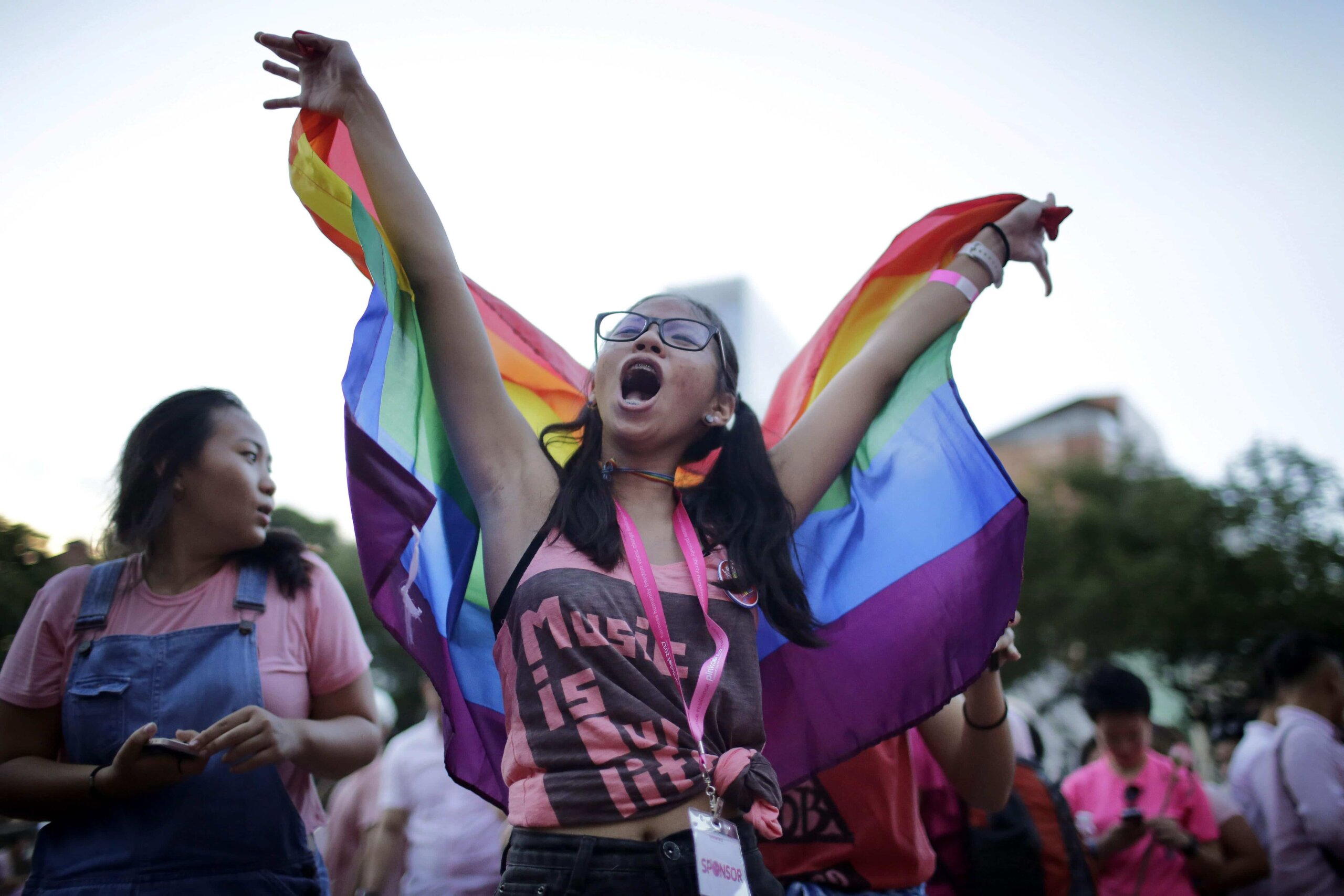Singapore is finally repealing its colonial-era ban on gay sex following years of court battles over LGBTQ+ equality in the Southeast Asian city-state.
In a state of the union address broadcast on August 20, Prime Minister Lee Hsien Loong announced that Singapore’s government would repeal Section 377A of its penal code, which criminalizes “carnal intercourse against the order of nature” with a sentence of up to two years in prison. In a televised address, Lee said the decision to abolish the statute is “the right thing to do and something that most Singaporeans will accept.”
“Private sexual behaviour between consenting adults does not raise any law and order issue,” he said in comments reported by various media outlets. “There is no justification to prosecute people for it, nor to make it a crime. This will bring the law into line with current social mores and I hope provide some relief to gay Singaporeans.”
Lee went on to refer to Singapore’s LGBTQ+ community, which has long lived under the shadow of Section 377A, as “our colleagues, our friends, our family members.”
“Like every human society, we also have gay people in our midst,” he said in his speech. “They are our fellow Singaporeans. They too want to live their own lives, participate in our community and contribute fully to Singapore.”
Section 377A dates back 1938, during the period of British colonial rule, although it was preserved following Singapore’s independence from the United Kingdom in 1963. The law specifically forbids sex between male partners, but was long enforced as a ban on virtually all LGBTQ+ visibility in public life, including queer and trans representation in films and television shows, according to the BBC.
Section 377A hasn’t been formally enforced in over a decade, during which time it has been subject to several unsuccessful court challenges. Most recently, Singapore’s Court of Appeal claimed in February that the law was “unenforceable,” but said that wiping it from the books was “beyond the purview of the courts.”
“[LGBTQ+ Singaporeans] do not face any real and credible threat of prosecution under Section 377A at this time and therefore do not have standing to pursue their constitutional challenges to that provision,” the court said in a 152-page ruling.
As LGBTQ+ advocates in Singapore continued to fight for Section 377A’s repeal despite setbacks, other formerly colonized nations have struck down their colonial-era sodomy bans in recent years. In 2018, the Indian Supreme Court made history by becoming the first Asian country to repeal anti-homosexuality laws imposed by the British. (In Africa, Lesotho and Botswana—both one-time British colonies—have lifted their statutes outlawing gay sex in 2012 and 2019, respectively.)
Section 377A laws are still enforced in Bangladesh, Brunei, Malaysia, Myanmar and Pakistan, although specific punishments vary. Criminal codes in Bangladesh and Pakistan are the most severe, mandating life in prison for same-sex intimacy.
But even as Singapore has struggled toward repealing 377A, societal views surrounding the LGBTQ+ community have shifted in recent years. Between 2012 and 2022, an Ipsos poll found that opposition to Singapore’s gay sex ban shot up by eight percentage points: from 12 to 20 percent of respondents. Nearly half of survey takers (45 percent) reported being more accepting of same-sex couples than they were just three years prior.
Singapore’s recent strides toward greater equality are not unqualified, however. Lee said during Sunday’s public address that the city-state intends to pass a constitutional amendment officially banning same-sex unions for the first time. The prime minister promised to “uphold and safeguard the institution of marriage” and said he would seek to “find the right way to reconcile and accommodate both the traditional mores of our society, and the aspiration of gay Singaporeans to be respected and accepted.”
“Most Singaporeans would like to keep our society like this. This is the government’s position too,” he said. “We have upheld and reinforced the importance of families through many national policies, and we will continue to do so.”
Despite the work that lies ahead, LGBTQ+ advocacy groups in Singapore celebrated what they believe is a major step forward.
“We are grateful that the Singapore government will repeal Section 377A through Parliament,” Leow Yangfa, executive director of Oogachaga, said in a statement. “This means a lot to the LGBTQ+ community. Decriminalization will not only improve the lives of LGBTQ+ people and their families, but will bring other obvious benefits to business, trade and Singapore’s international reputation, making this announcement welcome on many fronts.”


 Why you can trust Xtra
Why you can trust Xtra


